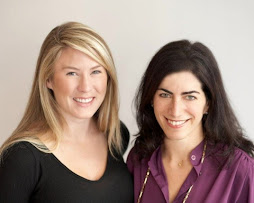
(Welcome to the second installment on a series about women's transformative influence on various societal aspects including the professional landscape, human evolution, social change, and philanthropy.)
Next up: the impact that women have had on moving us towards a collaborative group society.
Sarah Blaffer Hrdy, a favorite evolutionary psychologist of mine since graduate school, has just come out with a new book, Mothers and Others, that, like her other publications radically shifts the paradigm on why things (relationship, life, society) are as they are.
Her latest book discusses the impact that mothers and mothering had on our evolution and the development of our cooperative, group society.
Mothers and Others proposes that “the evolutionary significance of warfare is overrated. What made us human-what transformed our ancestors into a uniquely cooperative, hypersocial species of great ape-were not the requirements of inter-tribal combat, as some anthropologists have long contended, but the demands of motherhood. For most of human history, says Hrdy, our population was so small and spread out that there was no reason to fight over survival needs. But human infants’ large, slowly maturing brains and need for large amounts of protein make them uniquely dependent, and mothers found they needed help from other women to raise their babies. That led to the development of group trust and communication not found in our simian relatives. So take a bow, grandmothers, aunts, and other female caregivers, says Hrdy. You enabled humans to conquer the world.” - The Week Magazine
What additional insights are gleaned from this new framework? A review of reviews will tell us:
What she found is that our unique mothering instinct, quite different from gorillas and chimpanzees, meant that the children most likely to survive were those who could relate to and solicit help from others. We evolved to be wired for empathy for, consideration of, and intuition into how others are feeling. --Jessa Crispin (Smart Set)
Hrdy argues that unlike other apes, Homo sapiens could never have evolved if human mothers had been required to raise their offspring on their own. Human infants are too helpless and too expensive in their demands for care and resources. So human females have to line up helpers--sometimes extending beyond their own kin--to raise their young. That requires both males and females to invest heavily in social skills for bargaining with other members of their groups. Hrdy suggests that females in ancestral hunting and gathering groups may have thrived because they were free to be flexible in this way. Female flexibility was reduced when humans established settlements requiring male coalitions to defend them, probably leading to greater control of females by males. --John Odling-Smee (Nature )
Ill be reading this book on my vacation and will be sure to circle back with another insights and findings. In the meantime, WHAT DOES THIS NEW FRAMEWORK MEAN TO YOU?
Sarah Blaffer Hrdy, a favorite evolutionary psychologist of mine since graduate school, has just come out with a new book, Mothers and Others, that, like her other publications radically shifts the paradigm on why things (relationship, life, society) are as they are.
Her latest book discusses the impact that mothers and mothering had on our evolution and the development of our cooperative, group society.
Mothers and Others proposes that “the evolutionary significance of warfare is overrated. What made us human-what transformed our ancestors into a uniquely cooperative, hypersocial species of great ape-were not the requirements of inter-tribal combat, as some anthropologists have long contended, but the demands of motherhood. For most of human history, says Hrdy, our population was so small and spread out that there was no reason to fight over survival needs. But human infants’ large, slowly maturing brains and need for large amounts of protein make them uniquely dependent, and mothers found they needed help from other women to raise their babies. That led to the development of group trust and communication not found in our simian relatives. So take a bow, grandmothers, aunts, and other female caregivers, says Hrdy. You enabled humans to conquer the world.” - The Week Magazine
What additional insights are gleaned from this new framework? A review of reviews will tell us:
What she found is that our unique mothering instinct, quite different from gorillas and chimpanzees, meant that the children most likely to survive were those who could relate to and solicit help from others. We evolved to be wired for empathy for, consideration of, and intuition into how others are feeling. --Jessa Crispin (Smart Set)
Hrdy argues that unlike other apes, Homo sapiens could never have evolved if human mothers had been required to raise their offspring on their own. Human infants are too helpless and too expensive in their demands for care and resources. So human females have to line up helpers--sometimes extending beyond their own kin--to raise their young. That requires both males and females to invest heavily in social skills for bargaining with other members of their groups. Hrdy suggests that females in ancestral hunting and gathering groups may have thrived because they were free to be flexible in this way. Female flexibility was reduced when humans established settlements requiring male coalitions to defend them, probably leading to greater control of females by males. --John Odling-Smee (Nature )
Ill be reading this book on my vacation and will be sure to circle back with another insights and findings. In the meantime, WHAT DOES THIS NEW FRAMEWORK MEAN TO YOU?




1 comment:
Post a Comment